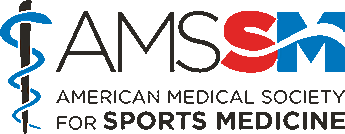A sports medicine physician has significant specialized training in both the treatment and prevention of illness and injury. They are ideally suited to provide comprehensive medical care for athletes, sports teams or active individuals who are simply looking to maintain a healthy lifestyle. Sports medicine physicians specialize solely in non-surgical sports medicine and serve as team physicians at the youth level, NCAA, NFL, MLB, NBA, WNBA, MLS and NHL, as well as with Olympic teams.
A Sports Medicine Physician’s Training:
- Board Certified in Emergency Medicine, Family Medicine, Internal Medicine, Pediatrics or Physical Medicine/Rehabilitation.
- Has obtained one to two years of additional fellowship training in Sports Medicine.
- Has passed a national Sports Medicine certification examination allowing them to hold a Certificate of Added Qualification in Sports Medicine.
- Participates in continuing medical education activities and recertification via re-examination every 10 years. This rigorous process was instituted to distinguish certified Sports Medicine Physicians from other physicians without specialized training.
- Is a leader of the Sports Medicine team, which also may include specialty physicians and surgeons, athletic trainers, physical therapists, coaches, other personnel and the athlete.
Sports Medicine is a recognized subspecialty by the American Board of Medical Subspecialties and by Medicare.
What is the difference between a Sports Medicine Physician and an Orthopedic Surgeon?
Both are well trained in musculoskeletal medicine. Sports Medicine Physicians specialize in the non-operative treatment of musculoskeletal conditions. Orthopedic surgeons are also trained in the operative treatment of these conditions. However, approximately 90% of all sports injuries are non-surgical. The Sports Medicine Physician can maximize non-operative treatment, guide appropriate referrals to physical and occupational therapies, and if necessary, expedite referral to an orthopedic/sports surgeon.
Common examples of musculoskeletal problems include:
- Acute injuries (such as ankle sprains, muscle strains, knee & shoulder injuries, and fractures)
- Overuse injuries (such as rotator cuff and other forms of tendonitis, stress fractures)Medical and injection therapies for osteoarthritis
Sports Medicine Physicians have received additional training in the non-musculoskeletal aspects of sports medicine. Common examples of these include:
- Concussion (mild traumatic brain injury) and other head injuries
- Athletes with chronic or acute illness (such as infectious mononucleosis, asthma or diabetes)
- Nutrition, supplements, ergogenic aids, and performance issues
- Exercise prescription for patients who want to increase their fitness
- Injury prevention
- “Return to play” decisions in the sick or injured athlete
- Recommendations on safe strength training and conditioning exercises
- Healthy lifestyle promotion
Do Sports Medicine Physicians only treat competitive athletes?
No, Sports Medicine Physicians are ideally suited to provide comprehensive medical care for the non-athlete as well, and are excellent resources for the individual who wishes to become active or begin an exercise program. For the “weekend warrior” or “industrial athlete” who experiences an injury, the same expertise used for the competitive athlete can be applied to return the individual as quickly as possible to full function.
Download a high-quality PDF of this information.

